On Friday, in response to a new, stringent set of United Nations sanctions, North Korea launched its second ballistic missile over Japanese airspace. The country has occupied a semi-steady presence in the headlines over the past several months, as escalating threats and displays of strength from both North Korea and the United States have driven tensions back up on the peninsula. The northern state launched its first missile over Japan in late August, following massive joint bombing drills conducted by the United States and South Korea. This came soon after President Donald Trump declared that new threats would be met with “fire and fury like the world has never seen,” prompting North Korea to threaten to strike the U.S. territory of Guam.
Unsurprisingly, throughout these developments, the conversations in American news media have continued to be dominated by foreign policy experts, conspicuously leaving out the voices of one critical group: Korean Americans. In response, we gathered perspectives from 12 gyopo, or overseas Koreans (including not only Korean Americans, but also a British Korean and a Korean Canadian) working in a wide variety of fields. Below, policy advocates, artists, activists, scholars and students with roots in Korea respond to the stories about North Korea being told in the news. They discuss how we got here, what’s missing from the conversation and the responsibilities facing Korean American communities in this political moment.
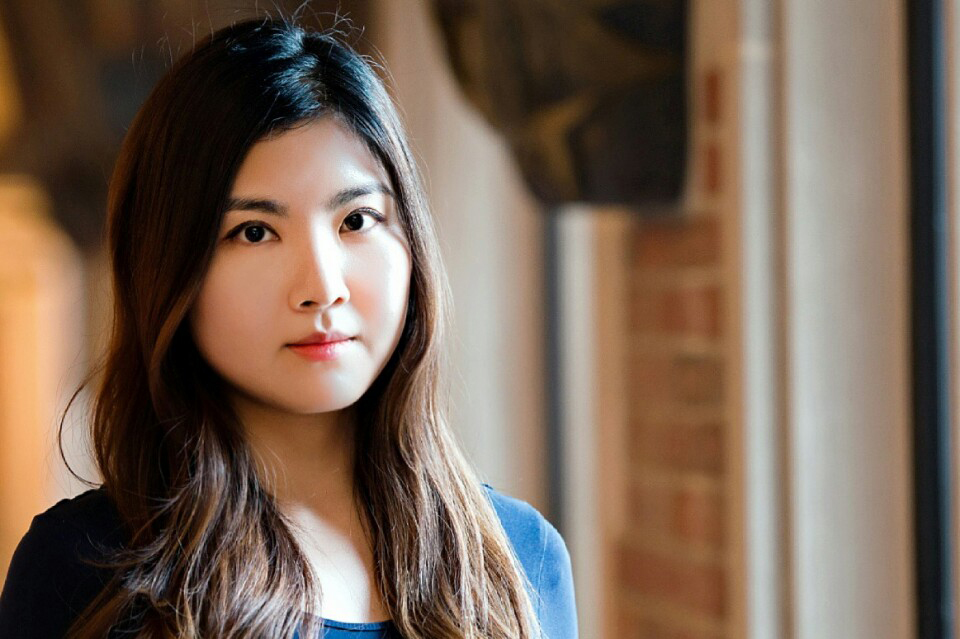

EMILY JUNGMIN YOON, poet, poetry editor for The Margins at the Asian American Writers’ Workshop
On the ease of forgetting:
A lot of people in the United States talk about or seem to conceive North Korea as some kind of random and evil inconvenience that has appeared out of thin air. When one begins to view an entire country as an ugly blemish to be wiped away — because it's too nice and easy to espouse an uncomplicated way of thinking — it also becomes easy to "forget" a) the fact that there lives a population of people whom we never see or hear and b) the role of the United States in the shaping of North Korea's history. To label a whole country "the enemy," call for war and blindly reject any possibility of change in the fluctuating political reality is to dangerously oversimplify an issue that puts many, many lives at stake.
On the importance of staying informed:
Educate yourself and then others. Question your own beliefs about North Korea and ask yourself where they came from. Read up on scholarship on North Korea, the Korean War, the Cold War, etc., attend talks, watch documentaries, speak to people who are willing to discuss or tell you about Korean history and politics. Learn as many perspectives out there as you're able. You don't have to be some type of pundit or feel like you should know everything, but it would be helpful to add a little bit to others' understanding of the relationships between the United States and the Koreas.
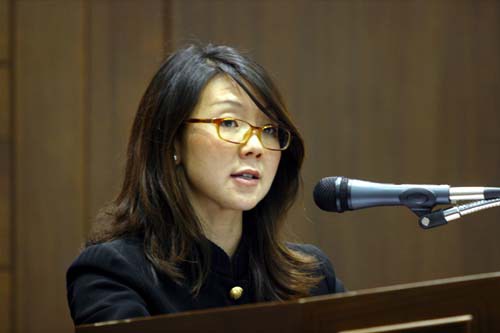
CHRISTINE AHN, co-founder of the Korea Policy Institute and founder of Women Cross DMZ
On what Korean Americans can and should be doing in this political moment:
[Korean Americans should be] joining national and local efforts calling for a cessation of hostilities by the Trump administration — no more “locked and loaded” nonsense and threats to unleash “fire and fury” on an entire people just because, as Senator Graham said, it will just be “over there.” Over there is where the United States had a hand in dividing the peninsula and waging a Cold War that has left the peninsula in a perennial state of war. As Korean Americans, we have a responsibility to have a critical understanding of this history and help foster peace with our motherland and our adopted homeland.
On the history missing from mainstream narratives:
Not only did the United States carpet bomb the country to smithereens during the Korean War (80 percent of cities were destroyed), but we have also had the most draconian sanctions against them for over 60 years. They have sought to normalize relations with the United States forever, especially after the Socialist Trading Bloc collapsed when the United States emerged as the world’s superpower. But we don’t get any of this backstory, which could help us humanize and have some empathy for the North Koreans.
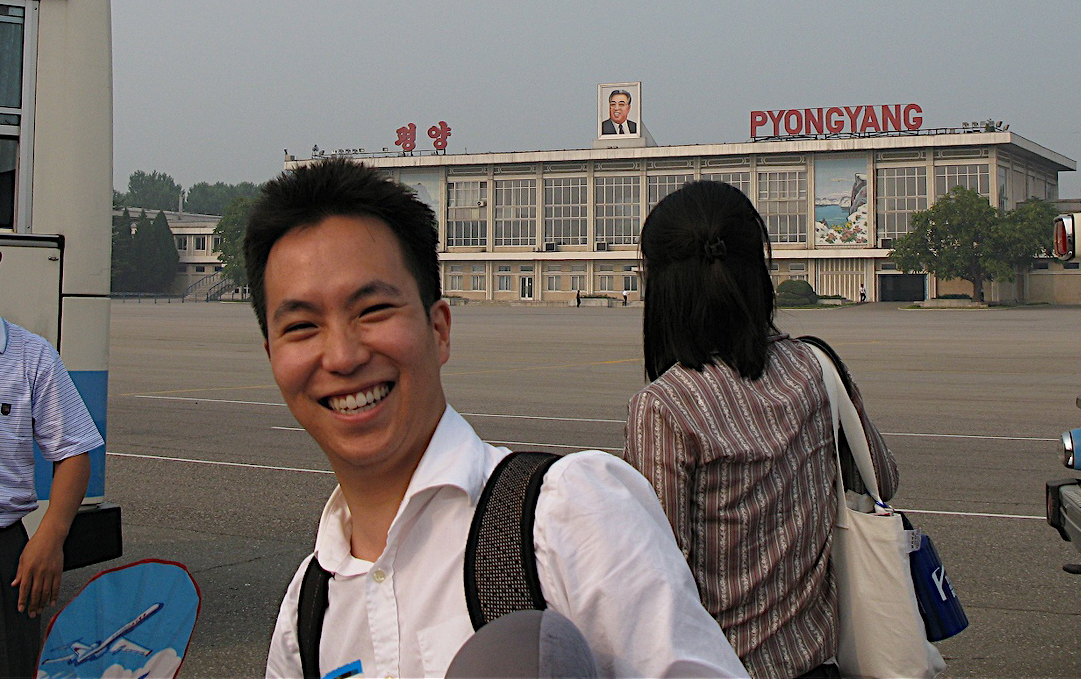
TERRY PARK, Asian American studies scholar and performance artist (and former Hyphen executive director!)
On clashing historical memories:
For [North Korean] leadership, war didn't simply start in 1950, nor did it end in 1953. They remember seeing B-52s drop Tarzan bombs — the largest conventional bombs at the time — on their homeland to try to kill them as they hid in their underground bunkers. For North Koreans in their 70s and above, they remember seeing their cities and towns completely flattened by more bombs and napalm dropped than in the entire Pacific campaign during World War II. For three terrifying years, North Korean civilians and soldiers were subject to unrelenting "fire and fury." So, when Americans talk with North Koreans, there are often two very different historical memories, two very different and historical temporalities, clashing.
On silence in Korean American families:
We have to remember that our parents and grandparents grew up in a Cold War climate of enforced silence and amnesia created by a series of virulently anti-communist, pro-U.S. military dictatorships. To speak about the Korean War's devastation in a way that remotely resembled critique of the United States' role or sympathy for North Korea, to speak about relatives that fled to the North, to read any literature that went against the imposed orthodoxy, could mean arrest or worse under the National Security Law (which still exists, by the way). To do the same here, in the United States, could lead to being red-baited by fellow Koreans or exacerbate existing anti-Asian racism towards "ungrateful," "untrustworthy" Koreans. This is why so many of our parents and grandparents either remained silent or mimicked the anti-communist propaganda they were forced to swallow by both the South Korean and U.S. governments. So it's not easy to ask them to open up — but when I read critical historiography on the Korean War and approached my parents with that knowledge, it made it easier for them to open up, and open up in a way that went beyond the orthodoxy that they were supposed to puppet. I started to hear stories, awful, uncomfortable and complex stories. They made me realize just how insane it was to live in Korea during that time. It's a miracle that any of them survived. It's a miracle that we're here.
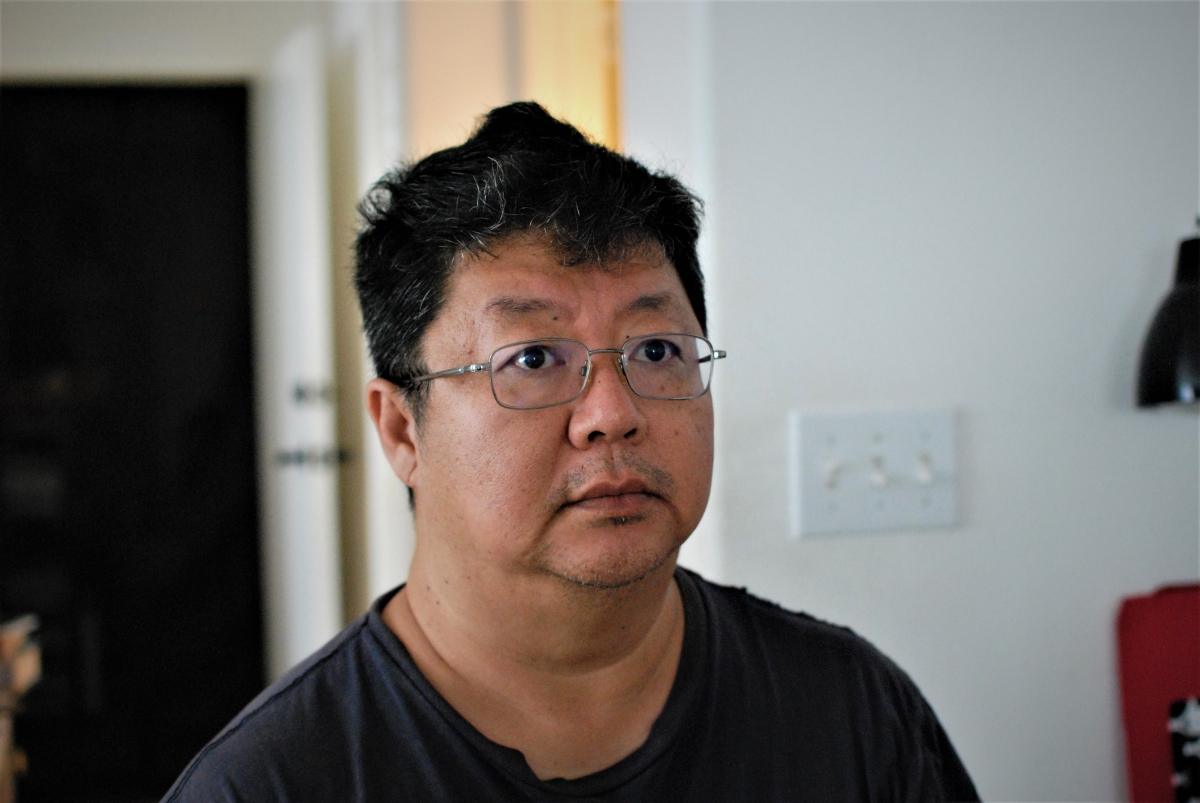
INBO SIM, board member of The National Korean American Service and Education Consortium (NAKASEC) and former student activist
On mutually assured destruction:
There’s some commonality between what North Korea is pushing for and what Trump is pushing for; they want to have nuclear proliferation in East Asia, and then to try to find peace among these nations with nuclear weapons. So it involves peace, but it also involves nuclear proliferation. There are theories about having a peace state by having mutually assured destruction — the idea being that, if everyone has nuclear weapons, then we’ll have a standstill. Personally, I don’t think that’s really peace. That’s not the peaceful state I want to live in.
On the history of nuclear weapons in Korea:
I’ve been working on peace issues regarding the Korean peninsula since the 1980s. I was part of an organization that promoted anti-nuclear issues in Korea in the 1980s and '90s. At that time, there was a tactical nuclear weapons station in South Korea controlled by U.S. troops, and we campaigned very hard to remove those weapons. In 1992, the United States did remove them, and it was a nuclear-free zone for a while.
I strongly condemn the North Korean government. But seeing American politicians like Trump come out and further pushing for nuclear proliferation is — I don’t know how to describe the emotions I go through. In Hiroshima and Nagasaki, there were forced Korean laborers that made up about a quarter of the victims of the nuclear bombings. We have experienced it, and going back again to that nuclear state makes it feel like history is not moving forward on the Korean peninsula.
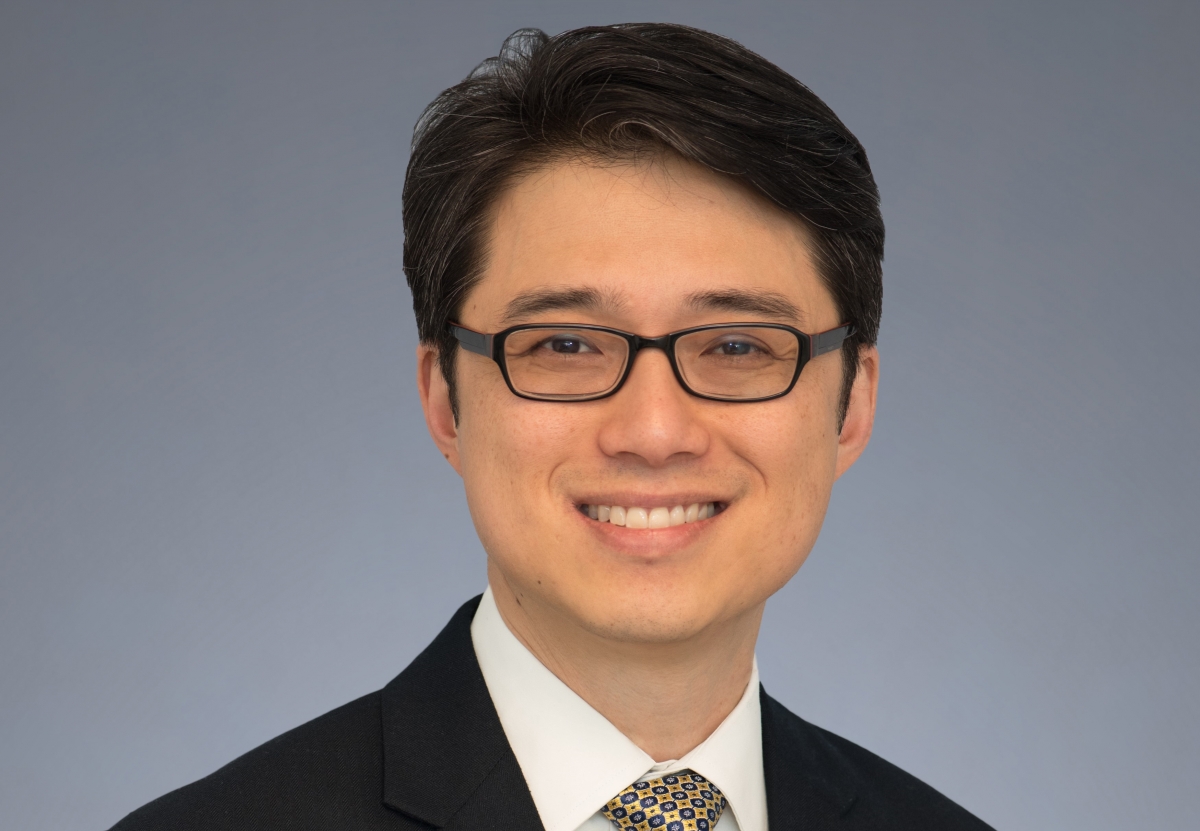
SAM YOON, executive director, Council of Korean Americans
On talking about talking:
The kind of talks that need to be had aren’t talks about the nukes; we should be having talks about talks. Some people might hear that and say, “Well, isn’t that just spinning the wheels?” Absolutely not. When you’re talking, you’re learning about how the other side thinks. So we, as Korean Americans, should be pushing for just that because I think we know the value of having a relationship before you talk about the things you need to talk about. That’s something that we intuitively get: how to have soju, how to talk about family, how to show mutual respect to develop that trust before you get into other things.
On speaking up:
I don’t think our community is used to having a voice. One thing that’s in many of our memories is the L.A. riots, which was a moment in our community where our lack of voice led to devastating consequences on us. That was in 1992. In the 25 years since then, I think Korean Americans have had a growing sense that their vote matters, that their engagement in civic dialogue matters. But we’ve got a long way to go. Our membership really sees this current crisis as an opportunity for us to tell our community that the consequence of not having a voice can be devastating in ways that we may not be able to predict.
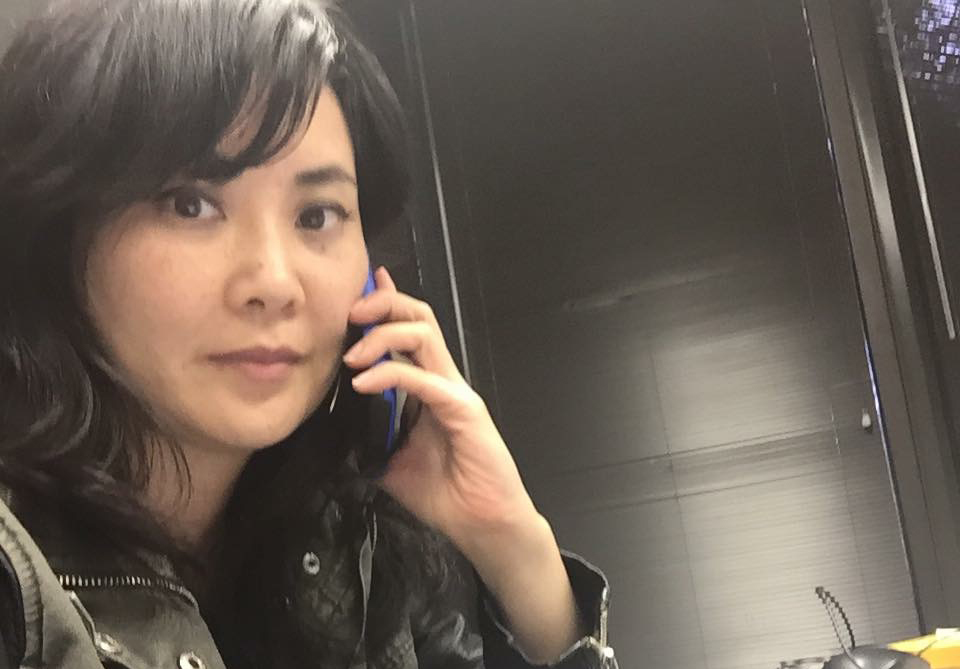
STEPHANIE CHO, executive director, Asian Americans Advancing Justice - Atlanta
On civic engagement beyond Trump:
The vast majority of Korean Americans, especially the first generation, do not understand the power public officials have in shaping U.S. foreign policy. It is not only the U.S. president, but the Congress who have much say. By voting and by having a unified voice to their members of Congress, communities can steer the conversation and help move the policy forward, particularly in Korean-dense areas like Atlanta. Assisting the community to civically engage to speak out even on international issues concerning the Korean community is part of our work to empower our local communities.
On the psychology of displacement:
Personally, as an adoptee, the [Korean] War is the whole reason why I'm here in the United States. These escalations remind me of how fractured our community has been and continues to be. This includes all of the diaspora and relatives that have been displaced by the conflict. There are generations who have lived with this active conflict, and it's one of the reasons why the deep sense of "han" remains an active state of mind even in Korean youth today.
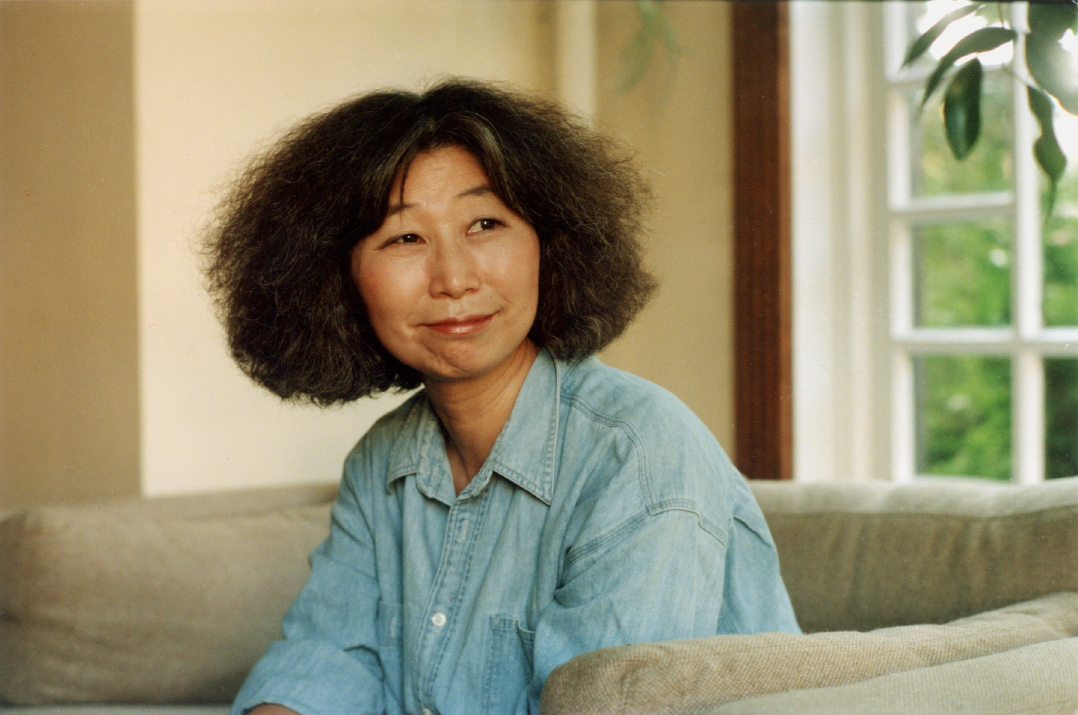
DAI SIL KIM-GIBSON, award-winning documentary filmmaker
On ordinary North Koreans:
[Americans] look at the bad things about the three leaders and lose sight of the people themselves. The people themselves are bright, devoted, gutsy, obedient and at the same time, rebellious. And they are the most courageous people — the ordinary people. With all that oppression going on at the higher level, they still manage to smile, they still want their children to go to college, they still want to see their children succeeding and going out into the world. And they’re extremely bright and capable.
If you really want to learn about North Korea and U.S. involvement in the Korean peninsula, don’t start out with what you learned or with assumptions you’ve had for a long time. Just clean your heart and mind out of that and try to learn for yourself. An assumption-less mind is almost impossible. But if you carry your assumptions about North Korea, you will never really learn.
On standing up to U.S. imperialism:
I agree with most of the American media’s observations that those leaders had problems, and that Kim Jong Un is creating more problems. I agree with that. But look at what he’s doing: He’s dealing with the superpower of the world, and the superpower of the world is dealing with this little country of 25 million people. Whatever is wrong or right, I admire the fact that they could confront the United States like that. I think that’s something. If it’s not courage, it’s gutsy.
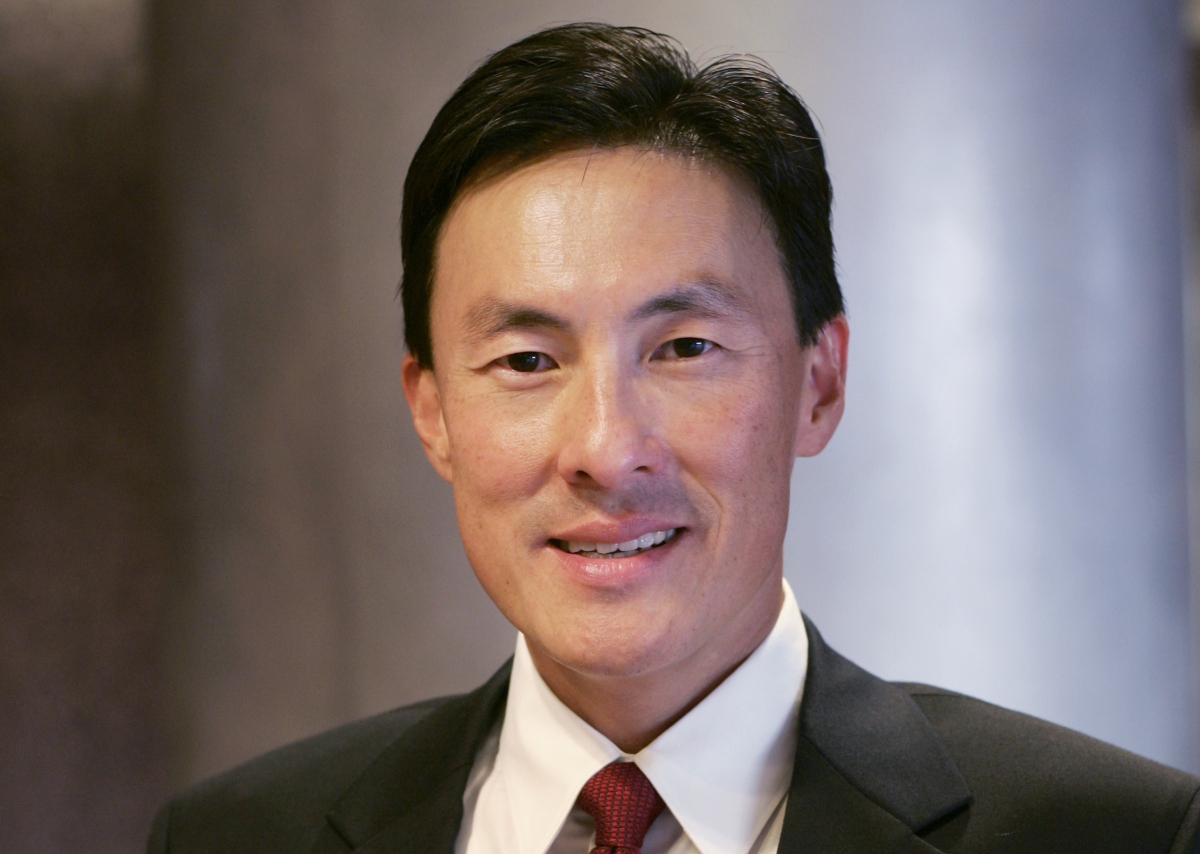
MARK KEAM, member of the Virginia House of Delegates and co-author of a letter to President Trump from 20 Korean American elected officials
On the connections to the events in Charlottesville, in his home state:
One common thread is that we have a president and a federal government that is not thinking through its policy ramifications and just acting in a reactive, knee-jerk way, which ends up harming the dynamic much more than any other president would.
The second part is that when Asian Americans are viewed as the other and as foreigners, as the enemy from the perspective of the white population, it doesn’t just end on our own soil here. It’s not just a matter of, “there are so many Asians here who are taking our jobs, our culture.” The moment North Korea and Kim Jong Un become the new face of the enemy, the color of our skin, our hair color, the way we look — all Asian Americans and especially Korean Americans may end up being targeted for hate crimes and racial profiling. Obviously, that’s one extreme version of what could happen, but that’s always in the back of my mind as a possibility.
On correctly assigning blame:
North Korea is an evil dictatorship. It is a little nation that has all kinds of problems, and there’s no question that we should deal with them in a really serious way — as a government. The government should somehow be removed in such a way that they no longer create a military threat. But the people of North Korea, the vast majority of North Koreans that live there, are not evil, communist, crazy people; far from it. They are the same as the people from the South. I wish the press would pay a little more attention to the fact that the people who live in North Korea, the vast majority of them, are innocent people who just got stuck there because of the war. But it’s the leadership who rules over them who are the evil ones.
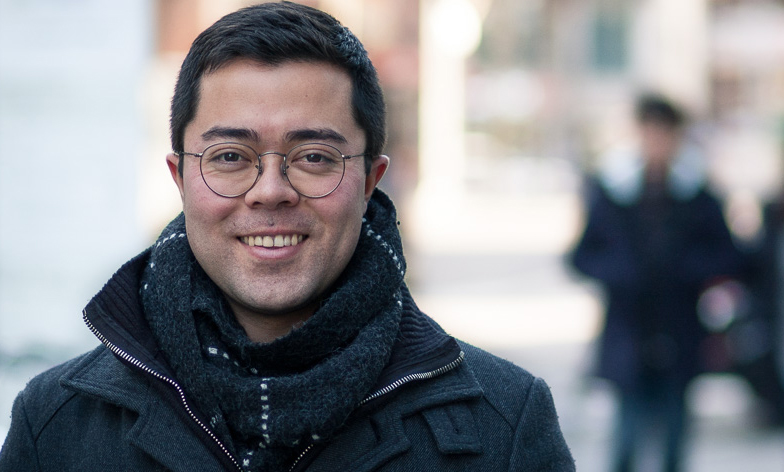
SOKEEL PARK, director of research and strategy, Liberty in North Korea (LiNK)
On “Crazy Kim”:
North Korea is, in international media and especially in American media, the land of the rising missiles. “Crazy Kim and his missiles.” Obviously, I work with North Korean refugees, for change and the opening of North Korea, so I’m no friend to Kim Jong Un. But still, as an analyst, you have to look at things without simply saying, “it’s just crazy, irrational.” Domestically and internationally, North Korea has managed to survive against the odds. They’re kind of the last man standing in terms of 20th Century-style authoritarianism. And they couldn’t have done that if they were crazy or irrational. They’ve been able to do it because they have mastered the science of authoritarianism and the game of international politics.
On the “soft underbelly” of North Korea:
So much focus on the hyped-up security situation is actually detrimental to the way we approach North Korea as a challenge. It plays into the strengths and the playbook of the North Korean government, and we miss out on solutions that are there but are being under-utilized. Security — traditional international security — that is where the North Korean regime is strong. But it’s the economic, social, cultural side that is the soft underbelly of North Korea. The economic change brought about by monetization and a market economy within the country; the information changes of foreign media being smuggled in; and the social changes that all this is leading to on the inside — these are really important long-term trends that are happening at the human and social level. But when all the focus goes on intercontinental ballistic missile (ICBM) launchers and nuclear concerns, it limits us from making positive progress.
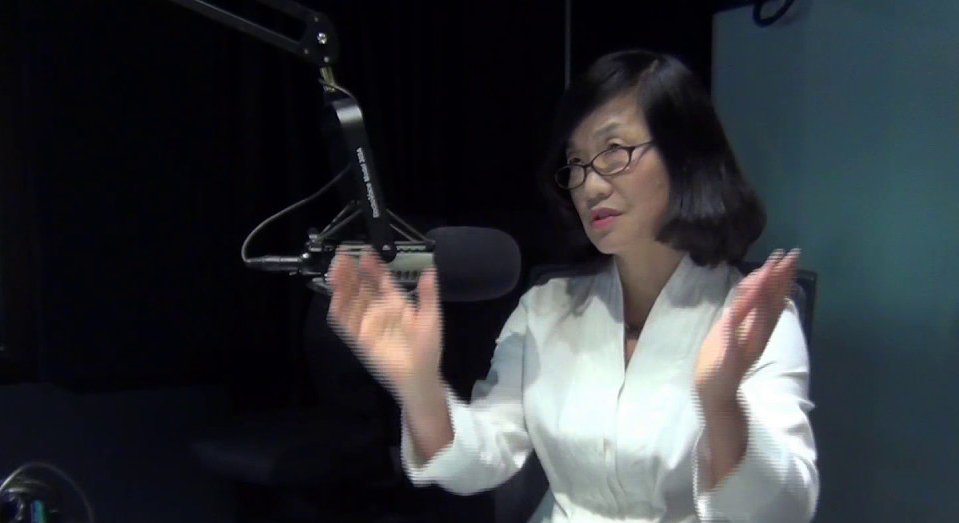
SIMONE CHUN, foreign policy analyst and member of the Korea Peace Network
On connections to the South Korean labor movement:
The first thing we have to understand is that all this war-driven policy is actually detrimental to the interests of workers. South Koreans have a very strong labor movement, and within the trade unions, they have very strong groups that specifically work for reunification. They have been very active. And whenever you have a rally, if unions are involved, you have more people. So Koreans workers and unions are very directly involved, and they give the energy and the financial resources. Also, there is solidarity between American unions and Korean unions working on this issue.
On uncertainty and the opportunity of this political moment:
During his campaign, Trump made the kind of comments that suggest actual engagement and hope for diplomacy — you remember the famous “hamburger diplomacy.” And then, he took a shift to a more hardline policy. And then there was the whole thing about the “fire and fury” threat. And now it looks like he’s stepped back. So I honestly don’t know what’s he’s going to do. I think it depends on how we react — how Korean Americans react, how the mainstream security analysts react. I think we have to create a shift in public opinion. Although it sounds really threatening and we’re all scared, I honestly think this is a great opportunity. The North Korean issue has not gotten enough attention. Things have been so horrible for the past 10 years, and now we have a small opening. For me, for the next10 years, I’m going to keep talking about it.
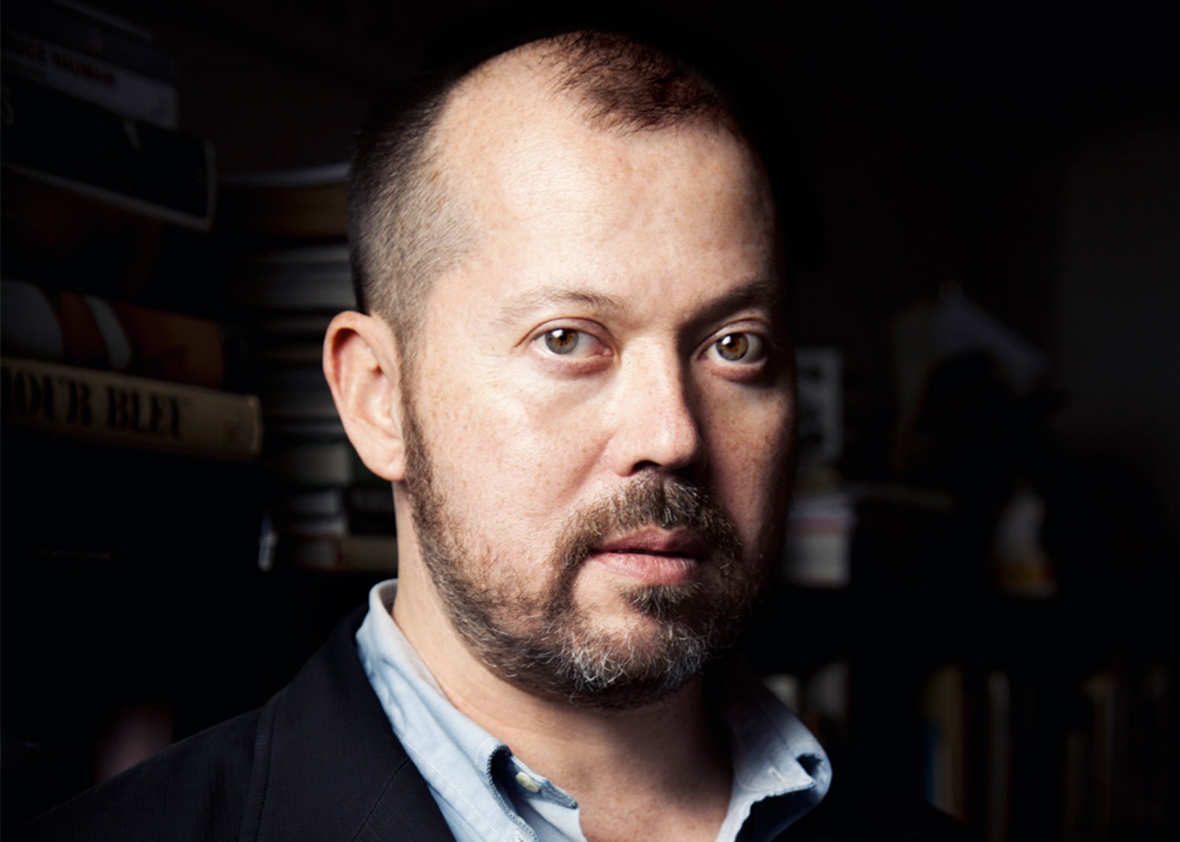
ALEXANDER CHEE, novelist, author of The Queen of the Night and Edinburgh
On spirituality, division and his new novel:
In the novel, there’s a divide between both the North and South and also between the living and the dead. You look at the divided families, the people who haven’t been able to do a proper jaesa for their relatives because the family’s temple is in the North or the South. These kinds of divisions are painful for Koreans in ways that aren’t usually discussed in news coverage. That’s a significant piece of it for Koreans and Korean Americans both — this sense of an interrupted family.
On honoring complexity:
It’s not as simple as communist vs. capitalist, North vs. South, America vs. North Korea. It’s complicated. It’s complicated because it’s human. And that’s the piece that we’re always trying to teach the American government and American people more generally — that we’re human. Which is something that I think is a common experience of Korean Americans; we’re always trying to make our humanity visible to people around us. And this is just a piece of that work.

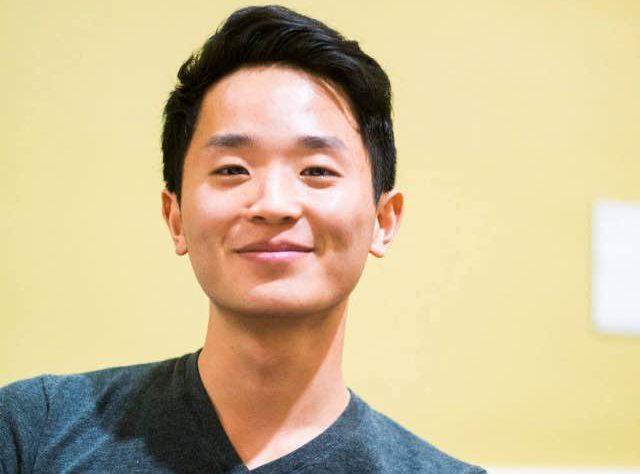
ISAAC KIM, president, Brown University Korean American Students Association
On his message to Trump:
Instead of demonizing an entire country and people, I'd like to ask the Trump administration to be more sensitive about such matters and understand that it's the government leaders that they're in conflict with, not the people. I also want the administration and the media to educate the U.S. population on North Korea (in terms of its culture, people, etc.) as opposed to just highlighting their nuclear warfare. There was a segment on Jimmy Kimmel Live where they asked Americans to point out on a map where North Korea was, and I was shocked at how many people didn't know.
On standing united:
In this moment, it's most important that the Korean American people be unified and stand together for what we believe in. It's very easy for the U.S. government to ignore the views of a fractured people, but given that there are almost two million Korean Americans, if we stand together, the government will have no choice but to listen.








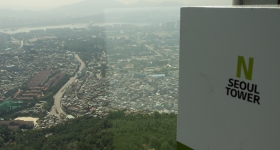
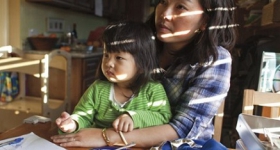
Comments